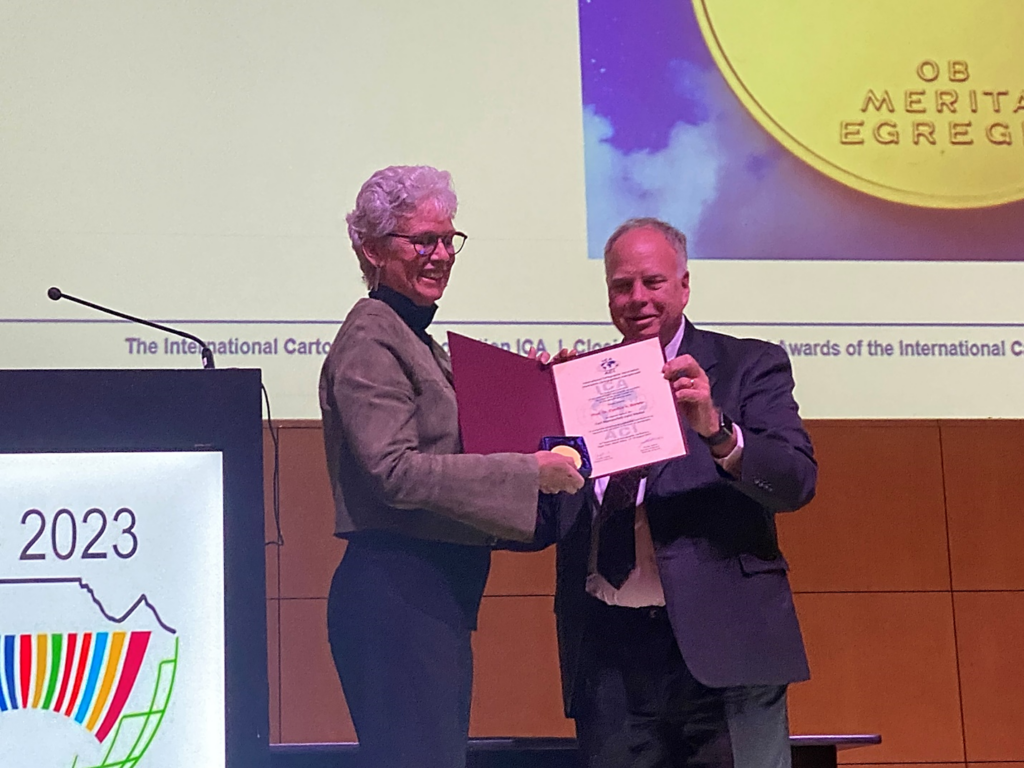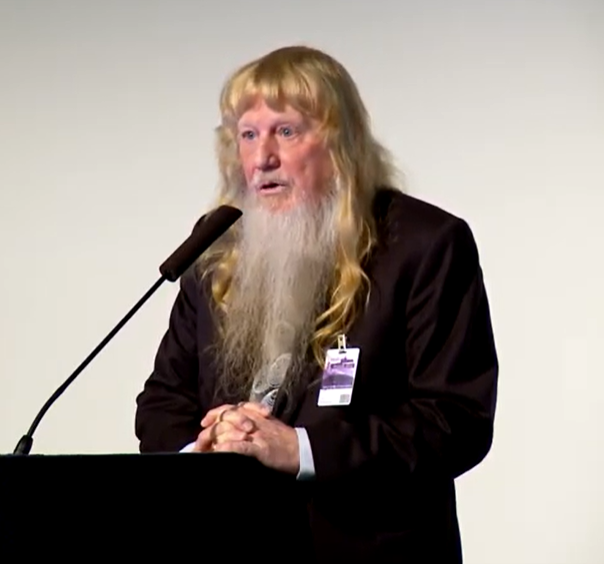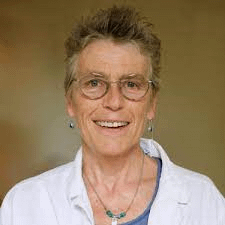Dr. Cynthia Brewer received the ICA Carl Mannerfelt Gold Medal during the Awards Ceremony at ICC 2023 in Cape Town, South Africa. The nomination was submitted by Aileen Buckley, U.S. Primary Delegate to the ICA and Chair of the U.S. National Committee for the ICA and Anthony Robinson, The Pennsylvania State University. Some of Dr. Brewer’s notable achievements are described in her nomination document,
“Dr. Brewer is widely known for her contributions to color theory in cartography, with the most impactful of her accomplishments being ColorBrewer, a web application that has helped innumerable people worldwide make appropriate and perceptually viable color choices for thematic maps. These color schemes are found today in commercial and open-source software packages used by tens of millions of people every day. Few others in our field can make any such claim to broad, daily impact on so many around the world. Her impact on the field of cartography has cemented her reputation as the world’s foremost expert on color in cartography, earning international acclaim. Dr. Brewer’s work does not stop with color, however, as she has led other significant projects all aimed at helping people to make better maps. These additional works include, among others, ScaleMaster, a tool developed though collaboration to provide guidance on generalization and multiple representations of geographic data. Her work has influenced the field to such an extent that the notion of creating a Brewer has become a goal for other academic Cartographers…”



